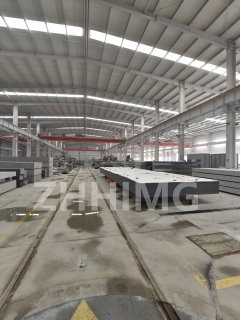Granite is a popular material choice for laboratory equipment and other precision instruments. Many laboratories and research organizations choose granite over other materials, such as metal, for various reasons. In this article, we will discuss why granite is a better option compared to metal for granite Apparatus products.
1. Superior Stability
Granite is one of the densest materials on earth. Its molecules are tightly packed, which gives it superior stability compared to metals. As a result, granite is incredibly stable, making it an ideal material choice for labs that require precision and accuracy.
Metals, on the other hand, are more prone to warping, bending, and expanding and contracting with temperature changes. This can lead to inaccurate results and unreliable equipment. With granite, researchers can trust that their equipment is stable and will not compromise their experiments or results.
2. Immune to Corrosion
Another significant advantage of granite is that it is immune to corrosion. Corrosion can lead to equipment breakdown and loss of data, which is costly and time-consuming to repair. Metals, especially those exposed to harsh chemicals or high humidity levels, are prone to rust and other forms of corrosion. Granite does not corrode, ensuring longevity and reliability of equipment.
3. Excellent Thermal Stability
Granite's stability extends beyond its molecular makeup. Granite has excellent thermal stability, meaning it can maintain its shape and structure even when exposed to extreme temperatures. This is particularly important for labs that operate under varying temperature conditions. For example, some experiments require low or high temperatures, and granite does not warp or distort under these conditions.
4. Resistant to Vibration
Granite is also resistant to vibrations that can affect equipment readings. This is beneficial for labs located in areas with heavy foot traffic or industrial areas where heavy machinery can cause excessive vibration.
Metals can amplify vibrations, making it difficult to obtain accurate readings and measurements. In contrast, granite's stable structure absorbs vibrations, leading to precise and reliable results.
5. Aesthetically Pleasing
In addition to its superior functional qualities, granite is also aesthetically pleasing. It adds a touch of elegance and professionalism to a lab, making it an attractive option for research organizations.
Conclusion
In conclusion, there are several reasons why granite is a better option than metal for granite Apparatus products. The material's superior stability, immunity to corrosion, excellent thermal stability, resistance to vibration, and aesthetic appeal all make it a popular choice for precision equipment. Therefore, if you are looking for high-quality, reliable laboratory equipment, consider choosing granite over metal.
Post time: Dec-21-2023

